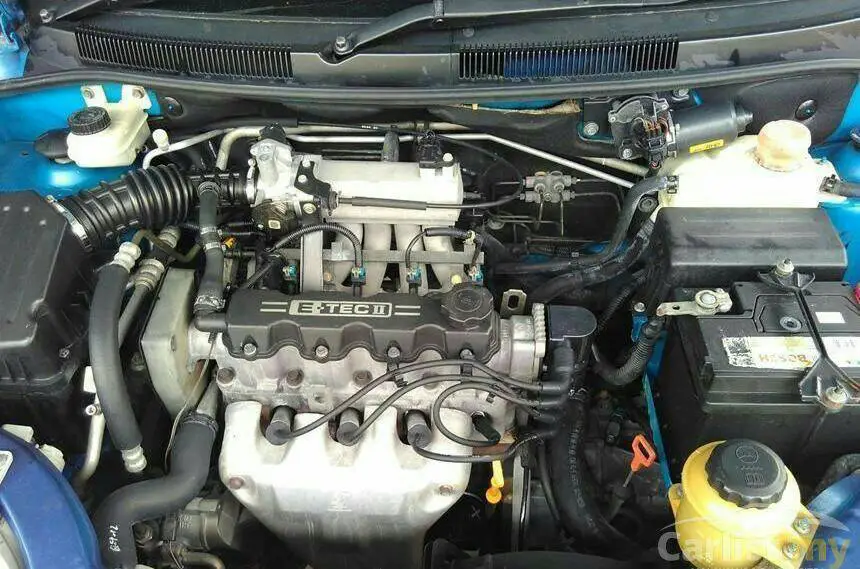If you’re a Nissan Sentra owner, you might have experienced a situation where your car won’t accelerate, which can be a frustrating experience.
In this article, we will cover everything you need to know about why your Nissan Sentra is not accelerating, including some of the most common causes such as a broken oxygen sensor, worn spark plugs, clogged fuel filters, malfunctioning airflow sensors, or blocked fuel injectors.
We will also provide you with some possible solutions to help you get your car back on the road.
With this article, you will be able to diagnose the problem with your Nissan Sentra and find the right solution to get it back to its optimal performance.
Stay tuned!
Also Read: Why Honda Civic Won’t Go Into Gear? All Reasons & Quick Fix
Why Is My Nissan Sentra Not Accelerating?
If your Nissan Sentra is not accelerating, there could be several reasons. Here are some of the most common reasons why your Nissan Sentra may not be accelerating:
1: Misfire
If your Nissan Sentra is misfiring, it will still accelerate, but you should hear the misfire when revving the engine when the vehicle is parked. There should be a misfire code.
2: Low Transmission Fluid
If your Sentra is too low on transmission fluid, it will no longer be able to transfer power to the wheels. The power goes to the torque converter, and that’s the end of the line. You should check the transmission fluid immediately. This is a common cause of not accelerating, but the RPM rises.
3: Torque Converter
If the torque converter is faulty, you may hear a clunking sound.
4: Clutch
If the clutch is faulty, it should start out slipping, and then eventually no movement. You should smell a rotten smell when the clutch is burning up. This is applicable only to manual transmission vehicles.
5: Broken Axle or Driveshaft
If the axle or driveshaft is broken, you may hear a slapping sound when you put the vehicle in gear.
6: Bad Transmission
If the car’s transmission is bad, usually, it will slip before there’s any acceleration.
7: Clogged Catalytic Converter
If the catalytic converter is clogged, it may feel like it has a hard limit to how much gas you can give it. There may be a rotten smell coming from the exhaust pipe. P0420 may accompany it.
8: Broken Oxygen Sensor
The oxygen sensor measures the amount of oxygen in the exhaust system and sends this information to the engine control module (ECM). If the oxygen sensor is broken, the ECM may not receive accurate information, which can cause the engine to run poorly and result in poor acceleration.
9: Worn Spark Plugs
Spark plugs ignite the fuel in the combustion chamber. If they are worn, they may not ignite the fuel properly, which can cause the engine to run poorly and result in poor acceleration.
10: Clogged Fuel Filters
Fuel filters remove impurities from the fuel before it reaches the engine. If they are clogged, they can restrict the flow of fuel to the engine, which can cause the engine to run poorly and result in poor acceleration.
11: Malfunctioning Airflow Sensors
Airflow sensors measure the amount of air entering the engine and send this information to the ECM. If they malfunction, the ECM may not receive accurate information, which can cause the engine to run poorly and result in poor acceleration.
12: Blocked Fuel Injectors
Fuel injectors spray fuel into the combustion chamber. If they are blocked, they may not spray fuel properly, which can cause the engine to run poorly and result in poor acceleration.
Why does my 2007 Nissan Sentra stutter when accelerating?
A 2007 Nissan Sentra may stutter when accelerating due to a variety of reasons. One possible cause is a malfunctioning speedometer that quits working when driving at speeds above 40 MPH, causing the RPM to fluctuate drastically and the accelerator to become sensitive. Another reason could be a misfiring engine, which is often caused by faulty spark plugs or coil packs. A misfire can be felt at any speed, but is most noticeable at low RPM.
How Do You Fix Nissan Sentra That Doesn’t Accelerate?

Here are how to Fix the Nissan Sentra That Doesn’t Accelerate:
- Clogged air filter: Replace the air filter if it is dirty or clogged.
- Dirty mass air flow sensor (MAF): Clean the MAF sensor with an appropriate cleaner.
- Clogged fuel filter: Replace the fuel filter if it is dirty or clogged.
- Fuel pump malfunction: Check the fuel pump pressure and replace the fuel pump if necessary.
- Faulty oxygen sensor: Replace the oxygen sensor if it is faulty.
- Dirty throttle body: Clean the throttle body with an appropriate cleaner.
- Worn spark plugs: Replace the spark plugs if they are worn out.
- Clogged catalytic converter: Replace the catalytic converter if it is clogged
FAQs
Q: Why is my Nissan Sentra not accelerating?
A: There are several reasons why your Nissan Sentra might not be accelerating, including a broken oxygen sensor, worn spark plugs, clogged fuel filters, malfunctioning airflow sensors, or blocked fuel injectors.
Q: What are the symptoms of a bad oxygen sensor?
A: A bad oxygen sensor can cause several symptoms, including poor fuel economy, rough idling, engine misfires, and the “check engine” light turning on.
Q: How do I know if my spark plugs are worn?
A: Some signs of worn spark plugs include difficulty starting the engine, reduced fuel economy, engine misfires, and a rough idle.
Q: What causes a clogged fuel filter?
A: A clogged fuel filter can be caused by debris in the fuel tank, a dirty fuel pump, or a buildup of rust and sediment in the fuel lines.
Q: What are the symptoms of a malfunctioning airflow sensor?
A: A malfunctioning airflow sensor can cause several symptoms, including poor fuel economy, engine misfires, and the “check engine” light turning on.
Q: How do I know if my fuel injectors are blocked?
A: Some signs of blocked fuel injectors include difficulty starting the engine, reduced fuel economy, engine misfires, and a rough idle.
Q: Can a bad fuel pump cause acceleration problems?
A: Yes, a bad fuel pump can cause acceleration problems by reducing the amount of fuel that reaches the engine.
Q: What is the average lifespan of a Nissan Sentra?
A: The average lifespan of a Nissan Sentra is around 150,000 to 200,000 miles.
Q: How often should I change my Nissan Sentra’s oil?
A: Nissan recommends changing your Sentra’s oil every 5,000 miles or six months, whichever comes first.
Q: What type of oil should I use in my Nissan Sentra?
A: Nissan recommends using synthetic oil with a viscosity of 0W-20 for the Sentra.
Q: How often should I replace my Nissan Sentra’s air filter?
A: Nissan recommends replacing your Sentra’s air filter every 30,000 miles or three years, whichever comes first.
Q: What is the recommended tire pressure for a Nissan Sentra?
A: The recommended tire pressure for a Nissan Sentra is 33 PSI.
Q: How often should I rotate my Nissan Sentra’s tires?
A: Nissan recommends rotating your Sentra’s tires every 7,500 miles or six months, whichever comes first.
Q: What is the warranty on a new Nissan Sentra?
A: The warranty on a new Nissan Sentra includes a three-year/36,000-mile basic warranty and a five-year/60,000-mile powertrain warranty.
Q: How much does it cost to replace a Nissan Sentra’s fuel pump?
A: The cost of replacing a Nissan Sentra’s fuel pump can vary depending on the model year and the mechanic you choose, but it typically ranges from $500 to $1,000.
Conclusion
A Nissan Sentra that is not accelerating can be caused by several factors, including a broken oxygen sensor, worn spark plugs, clogged fuel filters, malfunctioning airflow sensors, or blocked fuel injectors.
It is important to diagnose the problem correctly to avoid unnecessary repairs and expenses.
If you are experiencing acceleration issues with your Nissan Sentra, we recommend that you take it to a certified mechanic who can diagnose the problem and provide you with the right solution.
Regular maintenance and timely repairs can help keep your Nissan Sentra running smoothly and efficiently for years to come.
Thank you for reading this article, and we hope it has been informative and helpful.
If you have any further questions or concerns, please feel free to reach out to us.




